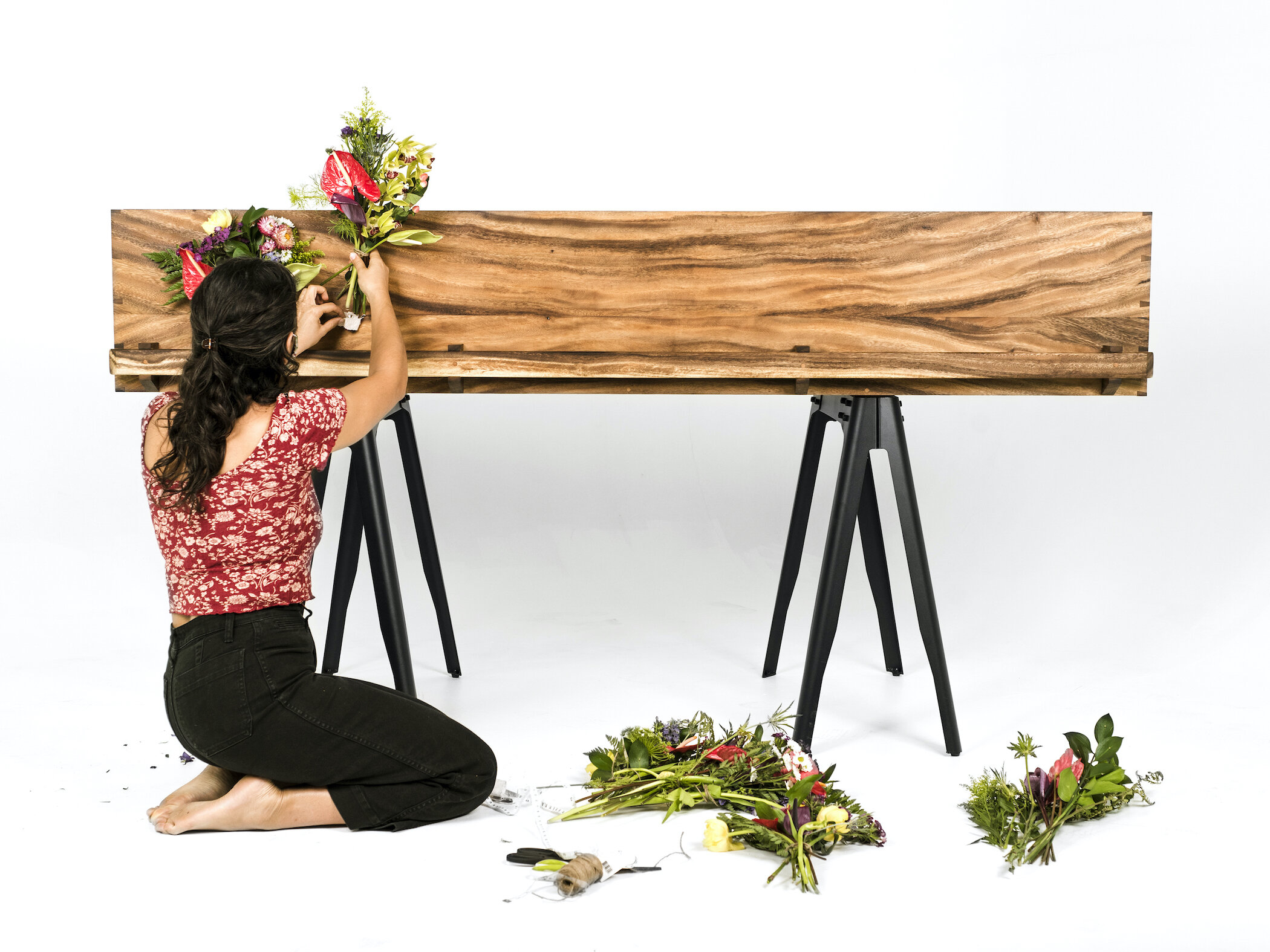FAQ
Do all funeral homes accept Pāhiki caskets?
Yes. The Federal Trade Commission’s ʻFuneral Rule’ protects all consumers in the deathspace. The rule allows you to purchase a casket from any source you wish, regardless of where you are buried or cremated. Funeral Homes are aware of this law and need only to be informed if you choose to bring your own casket.
How are Pāhiki caskets different from traditional offerings?
Traditional caskets are commonly constructed from non-biodegradable materials like: metal, paint, lacquer, rubber, plastic, and polyester. Materials which, in any other context, you’d likely never bury in your own backyard. Our caskets are crafted exclusively from: locally salvaged trees, dowels, non-toxic glue, unbleached cotton muslin, and coconut oil. Nothing more.
Are caskets only for burial?
No. They are for burial, cremation and visitations alike. You may choose to purchase a caskets for a service then go directly to the cemetery or crematorium. Pāhiki doesn't use any metal, chemicals, or combustibles, so our offerings are perfectly suitable for either burial or cremation.
From where & how does Pāhiki source its wood?
We use 100% responsibly salvaged trees from local arborists in Hawaiʻi. They are commissioned by homeowners, the state, private entities, etc. to remove trees that are typically then chpped or dumped. They can instead drop them at local saw mills to be transformed into viable lumber. This is an invaluable service as it replaces the need to import, as well as repurposes an otheriwse wasted resource.
Where does Pāhiki ship to?
Pāhiki currently ships to all 50 states, with an ‘eco-tax’ applied to all orders outside of Hawaii. The tax is our eco-offset which goes directly to KUPU. Please connect with us directly to determine which shipping option is best for your family.
How do you determine pricing?
We are committed to crafting affordable eco-caskets, lovingly available to all. In order to maintain our small radius supply chain integrity, the logs are transformed to lumber in Hawaii. It’s then a 10+ step process to turn the planks into caskets. Our prices reflect the labor intensive nature of our work while being mindful of economic accessibility.
